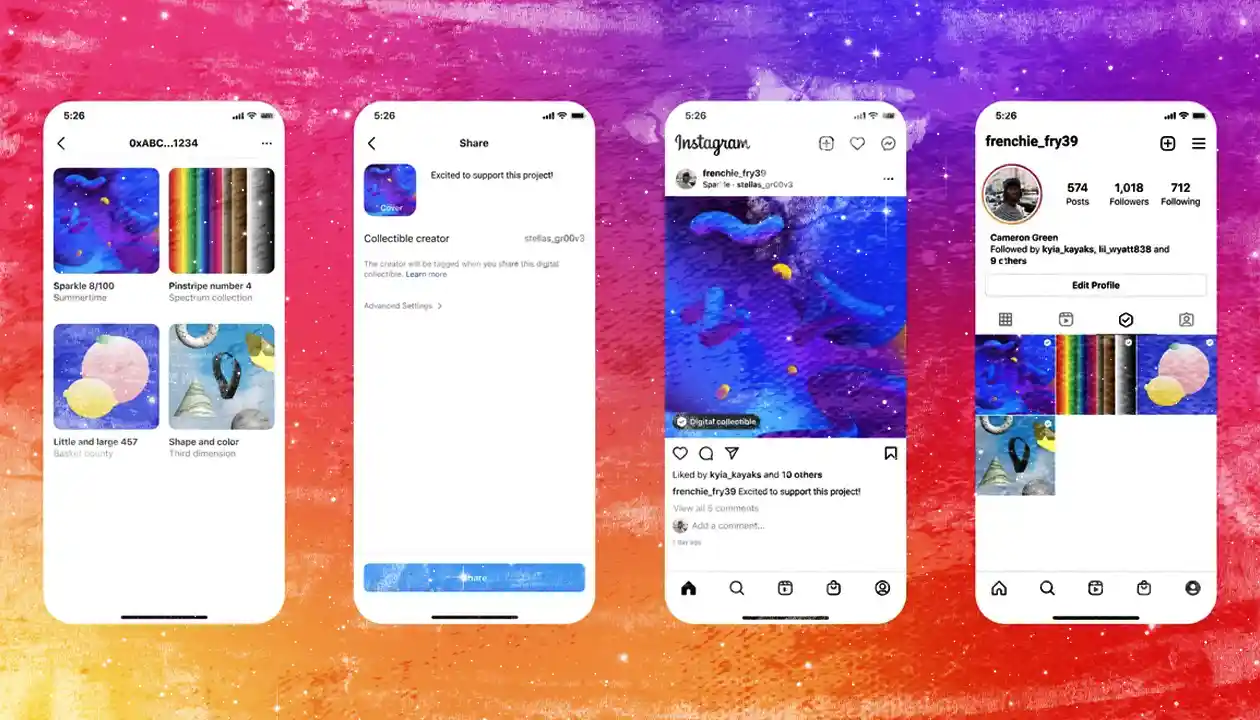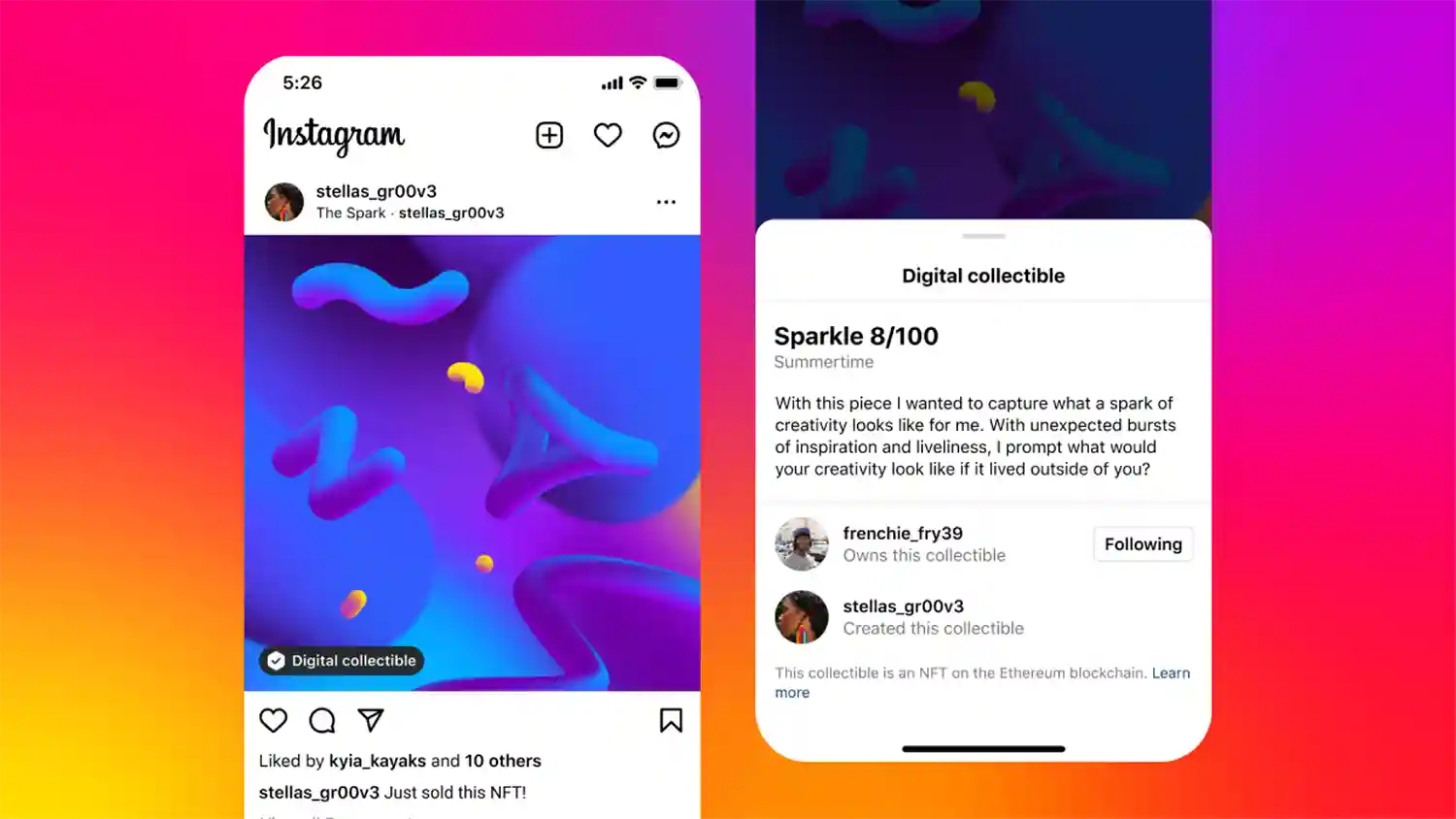Instagram Is Officially an NFT Marketplace

Since changing its name to Meta in late 2021, much of Facebook’s efforts have been focused on expanding its reach into the growing Web3 landscape. One significant initiative undertaken by Meta in 2022 was the integration of NFTs into its social platforms, Facebook and Instagram. Meta’s market-leading platforms were rumored to allow users to create, display, and (of course) sell NFTs as early as January of this year. However, before Meta could officially launch its NFT efforts, it had to address a major issue involving NFT-related content that violated its terms of service.
Meta began the year by blocking the spurious @NFT Instagram account, which was backed by Mark Cuban. @NFT was banned for posting sponsored content about NFT projects without disclosing that the posts were paid for, which violated Instagram’s terms of service and FCC guidelines.
Several months later, in March 2022, Mark Zuckerberg announced his intention to turn Instagram into an NFT marketplace, but he did not provide any details at the time. Finally, in a May Instagram update, Meta began testing its NFT features. It specifically allowed certain users to share NFTs they created or collected on their profiles and in the feeds of their followers.
“Similar functionality is coming to Facebook soon, as well as augmented reality NFTs on Instagram Stories via Spark AR so you can place digital art into physical spaces,” he said in a statement. Meta unveiled its entire NFT roadmap in June 2022. Soon after, in August 2022, the company rolled out NFT features to users in 100 countries worldwide.
However, the platforms’ core NFT capabilities had yet to be implemented. Specifically, users will be able to create/mint, buy, and sell NFTs with one another via Facebook and Instagram. According to yesterday’s revelation, that is about to change. During this round of public testing, select creators will be able to sell NFTs to their Instagram audiences.
Meta has promised that NFTs sold on its platforms will not incur any additional fees for the parties involved in order to make this process as seamless as possible for everyone involved. Of course, this does not imply that there are no charges. Purchases made within the Instagram app on Android and iOS devices are subject to app store fees. Instagram may introduce its own fees in the future.

